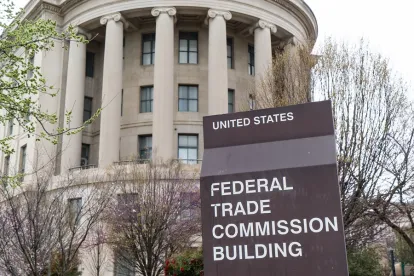In the last year, the US Federal Trade Commission (FTC) has demonstrated its willingness to challenge non-compete provisions in transaction agreements. Careful tailoring of a provision can mitigate the risk that antitrust enforcers will challenge the non-compete as substantially lessening competition. Non-compete provisions help protect a buyer’s significant investment in an acquired business. Although non-compete clauses often play a vital role in M&A deals, they are not immune from antitrust scrutiny. Since September 2019, the FTC has challenged noncompete provisions in at least three transactions. These demonstrate that the Commission and other antitrust enforcers are closely scrutinising non-competes and will not hesitate to challenge problematic provisions, even when the underlying transaction raises no substantive antitrust issues or when the provision relates to minority investments. Parties to a commercial transaction can easily manage this scrutiny by tailoring the scope of the non-compete to the transaction at hand.
Antitrust enforcers will look to internal documents and testimony as evidence.
What has the FTC Recently Challenged?
On 1 April 2020, the FTC challenged a series of agreements between Altria Group and Juul Labs whereby Altria agreed to refrain from directly or indirectly competing for closed-system electronic cigarettes in the United States in exchange for a 35% stake in Juul. Altria also agreed to refrain from undertaking research and design efforts to develop productions or technology that would compete with Juul. The non-compete provision prevented Altria from competing in the relevant market for effectively a six-year period. This challenge is significant because it related to the non-compete provision for a minority investment.
The FTC alleged that, as a result of the non-compete, consumers lost the benefit of head-to-head competition between Altria and Juul, and between Altria and other competitors. The FTC also alleged consumers would be deprived of benefits from Altria’s continuing innovation efforts to develop new and improved products. Although the complaint is heavily redacted, the FTC appeared to cite an internal document concerning Juul’s negative reaction to Altria’s proposal to modify the non-compete during the parties’ negotiations. On 3 January 2020, the FTC filed a complaint challenging Axon Enterprise’s acquisition of Vievu from Safariland, and several non-compete provisions between Axon and Safariland. The transaction agreements contained a series of non-competes regarding products and services, customers and employees, many of which restricted competition for business areas that were unrelated to the acquired business. Each of the challenged non-competes had a duration of at least 10 years. The FTC alleged that the non-competes substantially lessened competition because they were not reasonably limited in scope to protect a legitimate business interest. By refraining to compete for products, services, customers, and employees that were unrelated to the acquired business, the non-competes went “far beyond any intellectual property, goodwill, or customer relationship necessary to protect […] Axon’s investment in Vievu.” Even if they had been reasonably limited to protect a legitimate business interest, the FTC alleged that the non-competes were overbroad and longer than reasonably necessary. Ultimately, Axon and Safariland agreed to rescind the non-competes.
On 13 September 2019, the FTC challenged the purchase by NEXUS Gas Transmission of a natural gas pipeline from North Coast Gas Transmission. The FTC did not have concerns with the transaction itself and challenged it solely on the grounds of the problematic non-compete, which prevented the sellers of the pipeline, including North Coast, from competing in three counties surrounding the Toledo, Ohio area for three years. Before the sale, the parties competed with each other in the Toledo, Ohio, area, but the non-compete would have barred North Coast from competing with Nexus post-transaction, even with the other pipelines it was not selling. The FTC alleged that the non-compete was overbroad because it was not reasonably limited in scope to protect a legitimate business interest, explaining that “a mere general desire to be free from competition following a transaction is not a legitimate business interest.” Even if the non-compete protected a legitimate business interest, the FTC alleged the geographic scope was overbroad because it prevented North Coast from competing for any opportunity in the restricted area, including opportunities that were unforeseen at the time of the deal. After the FTC filed its complaint, the parties agreed to eliminate the non-compete.
Mitigating Antitrust Risk in Non-compete Provisions
There are few cases analysing non-competes in the antitrust context, but the recent FTC challenges provide useful guidance for parties considering a noncompete as part of an upcoming transaction, including in connection with minority investments UNITED STATES > NON-COMPETE PROVISIONS International News / 19 The purpose of a non-compete is to protect the buyer’s investment in the acquired business by preventing the seller from immediately re-entering the business following the sale. A non-compete should therefore be necessary to protect the buyer’s legitimate business interest in intellectual property, goodwill, or customer relationship related to the acquisition. The non-compete should protect against the risk that the seller will appropriate the goodwill it is selling to the buyer. A non-compete should apply only to the primary product or service transferred in the deal. The parties cannot simply agree “to be free from competition” in products unrelated to the transaction at hand. In some cases, a non-compete may restrict competition in ancillary products where the seller has concrete plans to enter or expand into the product and retains a business interest similar to the product being sold. In such cases, the antitrust agencies would likely carefully scrutinise the non-compete to determine whether or not the broad scope appropriately protects against a legitimate concern that the seller could easily re-enter the business being transferred in the sale and compete against the buyer. Similarly, the geographic scope must be reasonably tailored and should not apply to irrelevant locations. A good rule of thumb is that the restricted area should be limited to the geographic area in which the seller offered products or services, or had contracts at the time of the transaction. Antitrust enforcers may consider ease of entry and the availability of viable alternative locations. A non-compete should be reasonable in duration. In the recent cases, challenged provisions had durations of three, six, and over 10 years. While the FTC did not specifically call out the duration of the non-competes in the Altria/ Juul or Nexus/North Coast cases, a non-compete that is borderline objectionable in other areas is likely to draw increased scrutiny if the duration is too long. Antitrust enforcers will look to internal documents and testimony as evidence of an anti-competitive non-compete. In at least two of the recent cases, the FTC cited “hot documents” or testimony detailing the parties’ views regarding the non-competes. In the Axon case, the FTC cited a statement from the Chief Executive Officer describing one of the non-competes as the “hidden jewel in the deal.”
Parties should pay close attention to non-competes located in ancillary agreements that are negotiated as part of the deal, and not just focus on merger agreements or purchase agreements. In two of the recent cases, some of the challenged non-competes were located in ancillary agreements. The Federal Trade Commissioners are divided and have expressed competing views on non-competes. Given that it is a Presidential election year, parties considering transactions should be mindful that the FTC’s views on non-competes could become more hostile should the balance of the Commission change. In one of the recent challenges, the FTC’s two Democratic Commissioner issued a separate statement cautioning that “[t]oo many firms impose non-compete clauses to avoid the discipline of a functioning marketplace”, urging the FTC “to be sceptical of noncompetes that unnecessarily suppress competition” and encouraging the FTC to continue “to closely scrutinise contract terms that impede free and fair markets.”





 />i
/>i

